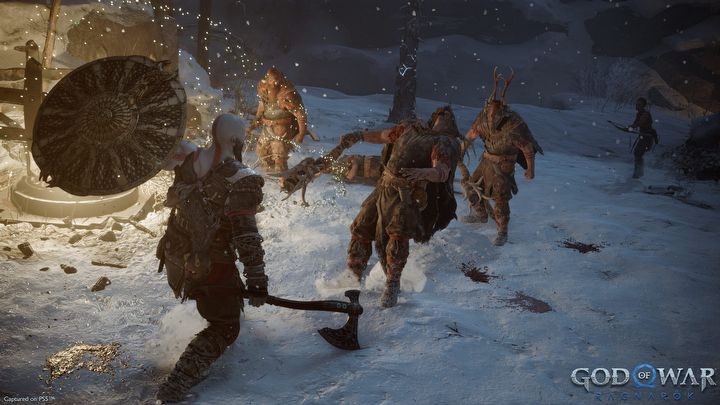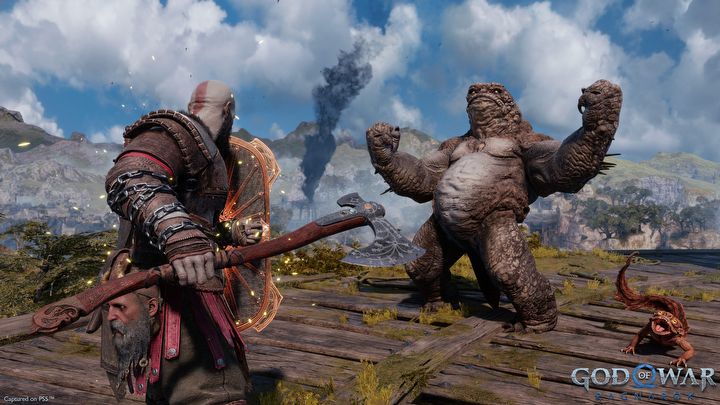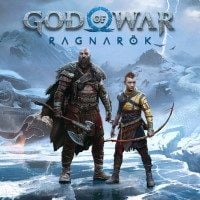7 Hours in God of War Ragnarok! Don't Expect a Revolution
After spending a few hours with one of the most anticipated games of this year, I can say that it is going to be very good, but not phenomenal. God of War: Ragnarok is a safe sequel, offering more of the same thing.
1
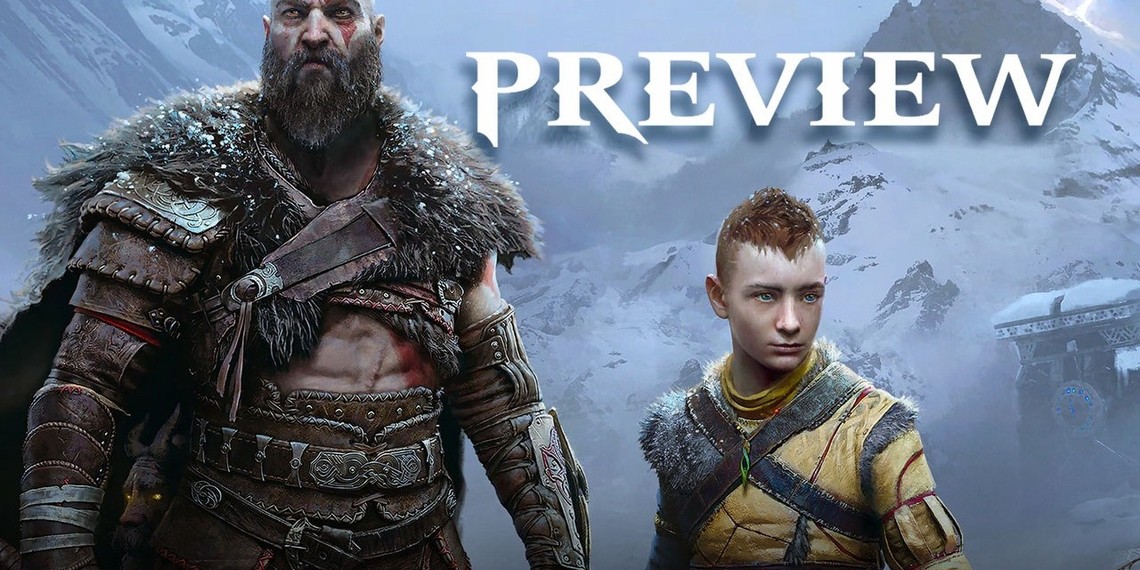
I've always openly admitted being a huge fan of this series. I've completed every installment, and I've got platinum trophies in those that have them available, some even twice over. As if that wasn't enough, I'm interested in both Nordic culture and the beliefs of peoples from the far north. In short, I'm the perfect target for this game, and no one should be surprised that even long before its release, Ragnarok was the most important title of the year for me. However, now that I finally have it my hands, there is a total confusion in my head and I already know that rating this game will be quite a challenge.
I believe that Ragnarok is a contender for the game of the year, although I also have a feeling that, ultimately, Elden Ring will prove to be better. Not only is the main competitor is a great game, but on top of that it has that one key element that the new adventures of the god of war don't have - that is being something fresh. Yes, I only have played the game for a few hours and, in truth, I have seen very little, but after what I have seen so far, I can already conclude that this is a painfully safe sequel. The beginning did not have a "wow" effect on me. The game also didn't show any game charger, unlike the aforementioned Elden Ring, which added an open world to its typical FromSoftware formula. While playing God of War for several hours, I had a feeling of constant déja vu, and despite the various improvements, which you will read about below, I could not get rid of this feeling. I am sure that in a dozen days or so we will get a solid sequel to a great game, but will it be enough to top the original? This question still remains open.
Proven solutions
Overall, the reception of Ragnarok will largely depend on everyone's individual expectations. Yes, it's a cliché, but an apt one in my opinion, because, after the game's release, I can already see a scenario in which audiences will be divided into at least two camps. The former will be disappointed by the lack of major novelties, so they will reach for the argument, which has been gaining popularity recently, that what we have here is a huge expansion to the original game and nothing more. The other one, on the other hand, will stand firmly behind the game, because why forcefully change something that worked perfectly before, and accept everything with a smile. However, the truth is that Ragnarok does not try to reinvent the wheel, as the previous part did.
The Santa Monica studio made the game based on an already made blueprint, did a few adjustments here and there, and added further plot threads to what years ago was merely an add-on to the bloody fights, that is the plot. To sum up, only the latter camp will be fully satisfied. I make no secret of the fact that I am closer to this one than to the former, although I understand the problem that some may have with this game.
Of course, making final judgments after a few hours is an extremely idiotic idea, but on the other hand, I don't expect that Ragnarok will surprise me with anything. At most, the only surprises I expect may happen in the plot, which is supposed to definitively end the Norse gods slaughter, explain the still unknown role of Atreus in annihilating the Asgardians, and give a clear answer to the question of whether Kratos' fate will be the same as in the prophecy known to fans, or whether he will survive the bloodbath, as he managed to do years ago.
So much for the lengthy introduction, let's now focus on what is important. Let me explain right away that we received the full version of this game for testing (almost four weeks before the release - I appreciate it), but today we can only write about the beginning, which ends with the heroes escaping from the second of the visited worlds, Svartalfheim - in my case, this was after 7 hours of gameplay. The developers asked us to not write about later events, so we will respect their wishes. We will post a full review in accordance with Sony's deadline which is November 3rd.
A great start
The new game begins roughly three years after the end of the first part, because that's how long, according to Norse beliefs, Fimbulvinter - the great winter preceding the titular war between gods and giants - lasts. Atreus no longer resembles the annoying boy from the original in any way. He has grown in stature, has become heavily trained in archery and, in the process, has gained a lot in the eyes of his father, who has finally started calling him by his first name. The men are still freezing in the hut once demolished by Baldur, sheltering behind a protective barrier that, this time, is held up by the young man.
This peculiar status quo would probably have lasted for a while longer, had it not been for Thor's visit, already shown in the previous God of War. I won't reveal any details, but it should be emphasized that as a result of these events, Kratos and Atreus will have to embark on another journey - how long, I don't know yet. Fan-favorite Mimir is back and continues to aid the main heroes with his counsel, even though it means hanging from the war god's back again.
We learn quite quickly that this tour is less personal than that of the original and does not focus exclusively on the difficult relationship between father and son. Surrounding Kratos, Atreus and Mimir are other colorful characters, both familiar and totally new. We still spend most of our time roaming back and forth in the core lineup, but this time the "axe team" needs some allies, who, inevitably, had to get their airtime too, and they got quite a bit of it. Alliances, moreover, are a necessary evil here, because the inevitable war between the gods and giants is approaching fast, and meanwhile, the latter side of the conflict is represented by archers in the exact number of one. It's hard to be snarky in such a situation, even knowing that our father specializes in turning pantheons to rubble.
The plot will undoubtedly be one of the high points of Ragnarok and it is evident from the very beginning of the adventure. The characters talk like crazy, and since dialogues are first-rate, listening to them is a lot of fun. A significant role in understanding what's going on is played by Mimir again, who explains the intricacies of Norse mythology with his colorful stories. Through his mouth, the game bombards us with information about specific deities, the relationships between them and other tidbits about the lives of the inhabitants of the nine worlds. People raised on the MCU will certainly find such knowledge useful, so it's worth appreciating the creators' efforts in this regard, even if we gnash our teeth when we see more Old Norse proper names on screen.
However, God of War is not all about story; it's primarily about gameplay. It's fair to say that the beginning of Ragnarok is much more impressive in this regard than in the game four years ago, and that's due to several factors. The first is the ability to use two weapons, namely the Leviathan and the Blades of Chaos, already in the prologue. After previous events, Kratos keeps his iconic weapons at arm's reach, and when setting out on a journey, he simply takes both of them with him. The ability to choose weapons invigorates battles, as they can be swapped in a split second. The game encourages experimenting with it, as freezing and setting enemies on fire opens up space to deal more powerful blows – if we attack the elementally-damaged enemy with the other weapon. Of course, weapons can be improved in a variety of ways, both in and outside the dwarves' workshops. The game doesn't spare us all sorts of raw materials and trinkets, which we use for upgrades. Those who remember the first part know what it's all about.
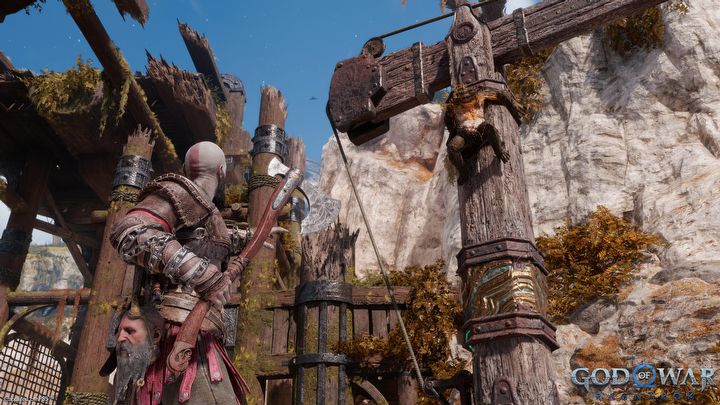
Opponents in Ragnarok have learned new tricks.God of War: Ragnarok, Sony Interactive Entertainment, 2022
The second factor are much better arenas, which primarily offer greater mobility. You can't see it yet at the very beginning, but the further into the woods you go, the more diverse they get. Kratos can use special anchors to move more quickly, allowing us to save his ass in an emergency situation or shorten the distance to an enemy firing from a distance. It's a really nice change, especially since the Spartan still doesn't remember how to jump, and remains welded to the ground. The arenas also contain other interactive objects. It is possible to fling boulders at your opponents, as well as blow them up by hitting red containers with Leviathan.
The third and final issue is a much more diverse roster of opponents. The developers seem to have taken to heart the complaints about too repetitive mobs in the original, because now there are many more. Not only that, the authors quite often mix up the composition of enemy groupings, so that most skirmishes force us to beat creatures that are substantially different from each other and have their own unique behavior patterns. Situations in which we are bitten in the legs by stubborn creeps, and at the same time get hit by a humanoid opponent, are the order of the day here. Developers from Santa Monica didn't slack around when it came to bosses either. Only in the first hour, you have to kill three of them, which speaks for itself.
Ragnarok like Brotherhood
Fights and conversations with NPCs are diversified by numerous environmental puzzles. It's impossible to count the situations where we either have to rearrange some objects or hit something specific – mainly to pave the way forward. I already wrote in the review of the first installment of the series that it dwarfed games like Uncharted and Tomb Raider combined in this regard – and it is still similar. It may even happen that you get stuck in a location for a while because the solution to a particular problem doesn't seem immediately clear. At such moments, a helping hand is extended by our companions, who provide various hints. Atreus shines in particular, and his even able to point out with his hand the object we should be examine first.
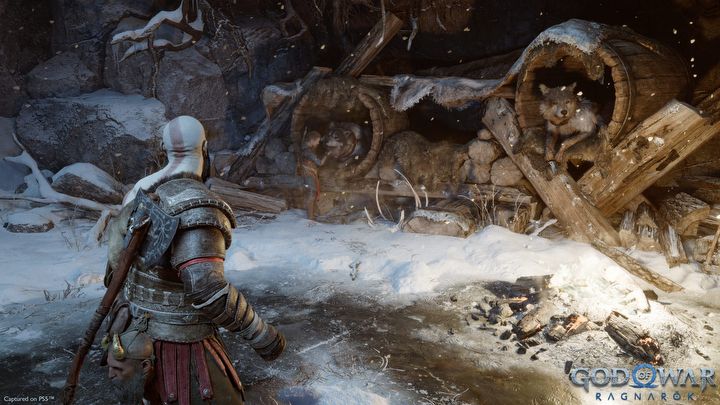
Atreus takes care of the wolves, but it is Kratos who controls the sled.God of War: Ragnarok, Sony Interactive Entertainment, 2022
By the way, Atreus grew a lot in Ragnarok. There's no trace left of the somewhat naive and curious, but also quite annoying boah. Three years after the events of part one, it is him, not Kratos, who becomes the guide in the journey through the nine worlds, setting the direction for the band to follow. At times, the father even has to call his offspring to order, as Atreus wild and can pull off some bold moves that Kratos doesn't always approve of. The relationship between the two characters enters a whole different level in this game, and you can even feel the respect the Spartan starts to have for his son. As I've already said, Kratos no longer simply addresses his son with the quite iconic "boah" – the word doesn't exist in his lexicon anymore, and there are more such details.
Everything else is basically God of War18×16 svg as we remember it from 2018. I mentioned the feeling of déja vu that accompanied me all the time during those few hours of play. This was indeed the case, as we slam more mobs, explore new and old locations, and watch the same animations on screen as before. I think a good comparison here would be the Assassin's Creed series, especially the Ezio trilogy. To the earlier installment of the series, Ragnarok is what Brotherhood was for Assassin's Creed II. Part two proved to be a huge step forward in the assassin saga, while Brotherhood safely expanded that formula, introducing only minor innovations. The new God of War does exactly the same thing, which of course doesn't disqualify it in any way – it's just something to remember.
So far, I like the game a lot, and if I was tempted to try to rate it after these seven hours, I guess it would be an eight and a half, maybe a nine. That's high, but lower than before. I'm hoping that bigger surprises will come later in the game, so that I won't have to reach for the word "rehash" in the final review. Of course, this doesn't apply to the plot, because there is a lot going on, and it is already difficult to wrap your head around it all. I'm extremely curious to see how the authors resolved several issues and, most importantly, how they presented the events from mythology. There, it is quite clear who wins and who looses, and this doesn't just apply to gods we will face. Given how the character and story of Baldur were presented in God of War, I expect numerous twists and a thrilling finale and ending. Whether this will be the case, however, remains to be seen.
